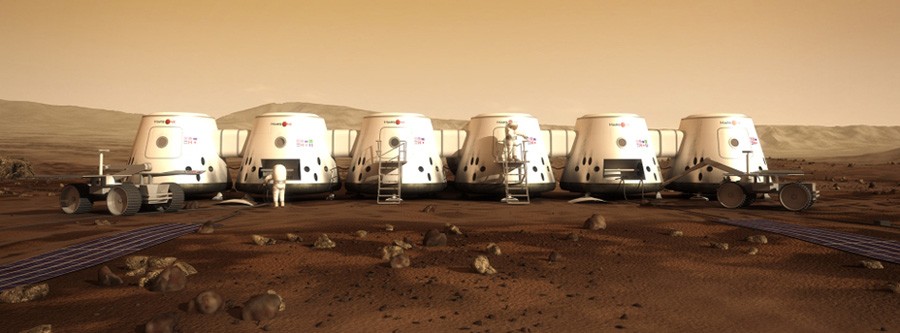You Can Be a Mars Colonist
This could be the future home for the qualified people in 2023. Resiliency, adaptivity, and creativity are just a few of the needed characteristics of future Mars pioneers.
February 17, 2016
In anticipation of NASA’s future space explorations such as colonization of mars and future visits to the moon, NASA will be accepting applications to become a future space pioneer. Space sounds fun but there are some downsides to becoming and alien planet colonist. The journey to Mars would be a few weeks long, just to get to the planet. Then after landing the rest of the time would be spent sleeping or working on establishing a functional settlement. Another downside is, Mars is a one-way trip. Once you’re on Mars, it’s your new home for life.
NASA has some regulations as to who can apply and who they are looking for. You can’t be a vegetarian or a vegan, meat is a needed food source in space. Night owls and loners are also good candidates. On Mars the days are 40 minutes longer than our Earth days. This means with every passing day the time becomes more off. Being a loner is good because in a space colony there are only a few people to talk to, so going long periods of time alone without getting space madness is a plus.
To be a NASA Mars colonist you need a few required traits. Resiliency, you need to have a strong mind. In space you are faced with extended periods of loneliness and depression and madness can set in quickly. Adaptability, you need to be ready for a lot of change, Mars is an alien world everything you know on Earth is very different there. Trustfulness, you need to be able to fully trust and rely on your fellow space pioneers. Lastly, you must be creative, in space if a problem arises no one can help, so it’s up to you to find a solution.
NASA plans to eventually have the mission be round trip with a few year gap in between, meaning you will fly there, relax on Mars for a bit and then fly back. It will take an eight-month space flight just to get to the surface. Then, astronauts will spend another 500 days searching for life, or past life on the red planet. After the 500 day period ends, there will be another eight month flight back to Earth. The job will pay between $66,000 and $144,500 a year. The flight is scheduled for some time in the year 2022 and NASA plans to land on the planet in 2023.
NASA plans to fund the mission by taking a reality television series point of view. The red planet will become the new set of the most anticipated event in Man’s current history, one small step for man, one giant leap for mankind. The first step on mars will be televised and is estimated to bring in around $700 million.










